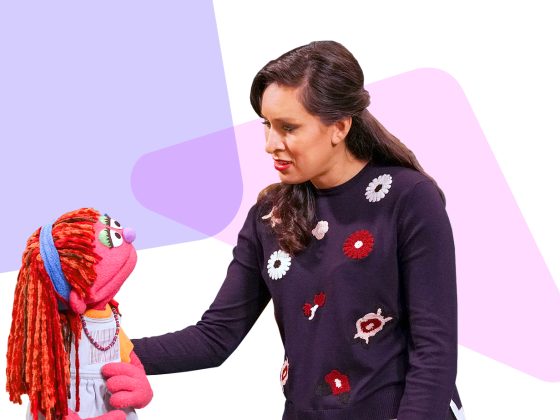
Talk About It: For Children Experiencing Homelessness
Honest, age-appropriate ways to respond to children’s difficult questions.
Use these suggestions for answering children’s questions tough questions. Decide what and how much to share based on children’s ages and your own instincts.
Why don’t we have our own home anymore?
- Keep your answer as simple as possible, depending on your situation. (We needed to be somewhere that was safe for us. I lost my job and didn’t have enough money to pay our rent, so we had to leave. The storm ruined our apartment building.)
- This happened because of other terrible things that have happened. No one deserves to be without a permanent place to live.
Why do we keep moving around? Why can’t we stay in one place?
- We have a place to stay, but it’s not our own place.
- Different people are helping at different times.
- We are “in between homes.”
When will we have a home? Share information you have, keeping in mind that it might change.
- The people who are helping us think that it could happen in [one week, one month, in the summer, and so on]. We hope that is true, but it could change.
- I just don’t know for sure, but I hope it will be soon. What I do know is that we’re a strong and brave family, we will get through this, and I will always take care of you.
- Even though we can’t be sure when we will have a home, we know that this is a temporary situation. That means it’s not permanent—it will not last forever.
- We don’t know exactly how and when things will change, but when times are bad, it helps to remember they won’t always be that bad. Nothing ever stays the same… except for the love in our family.
When talking about time, point out that things are always changing, and that means things won’t always be this way. Try watching cloud shapes—point out that they change slowly, with the wind.
When talking about home, stress that home is more than a building—home is about the love and care you have from the grown-ups around you.
Is it my fault?
- Never. It’s a grown-up problem.
- I’m the grown-up, so I’m trying to figure it out. I’m asking for help. I’m working hard to make things better for our family, and other people are trying to help, too.
Why can’t I bring all my toys and other things?
- Just like you have rules you have to follow at school, the place we’re staying has rules we have to follow too. One of the rules is that we can only bring a small number of items with us, so we can only take the things we really need.
- There is not enough room where we are staying to keep a lot of things.
Are we going to be okay?
- I will keep you safe and I will always try my best to take care of you.
- This is something we will get through together.
- We will go on to something better in our life. Things won’t always be so hard.
I want to help you/our family. I want to take care of you and fix everything.
- It’s so kind of you to want to help. But this is a grown-up problem and it’s not something that you need to try to fix.
- I am working hard to make things better for our family, and things won’t always be this way.
What will other children think?
- If you want to, you can explain to them what I just explained to you.
- A good friend is someone who will be kind to you about what is happening to our family right now.
- If others are bullying you, tell a teacher or other grown-up who is around, and tell me after school.
And you can’t say these things too many times!
- You are safe.
- You’re not alone.
- You are a learner, and no one can take that away from you. You are important and valuable.
- This is a temporary situation. We will get through it.
- You are going to go on to something better. This is like one page in the book of our family (or your life). It is not the whole story.
Remember, it’s okay to say I’m not sure how to answer that question; let me think about it for a while.
Pro Tip: Print out these ideas for parents to use as they handle difficult questions from their children. Each parent will have to decide how much information to share, and how to adjust their answers based on children’s ages.
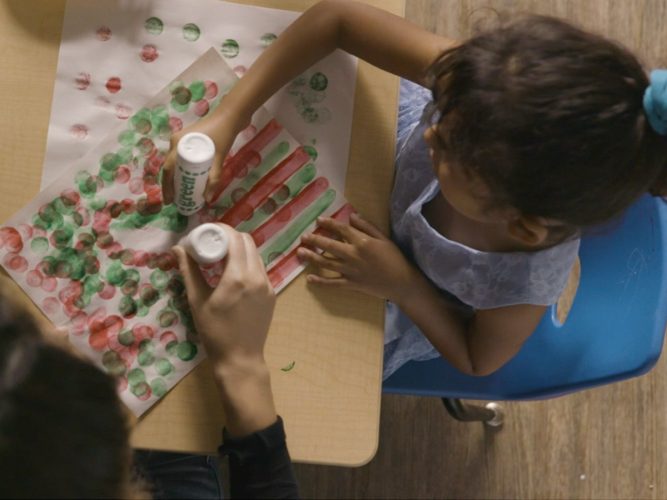
Provider Workshop: Healthy Goodbyes Resources part 2
In the face of these challenges, you can model healthy goodbyes.
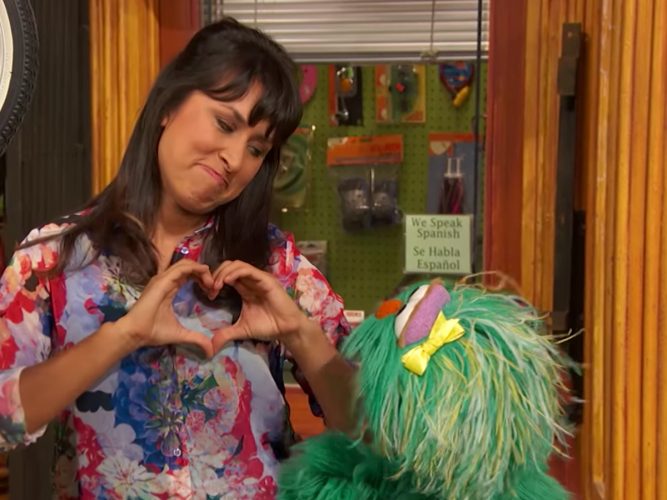
Hooray for Hands
Hands remind us of the power of helping, sharing, and caring.
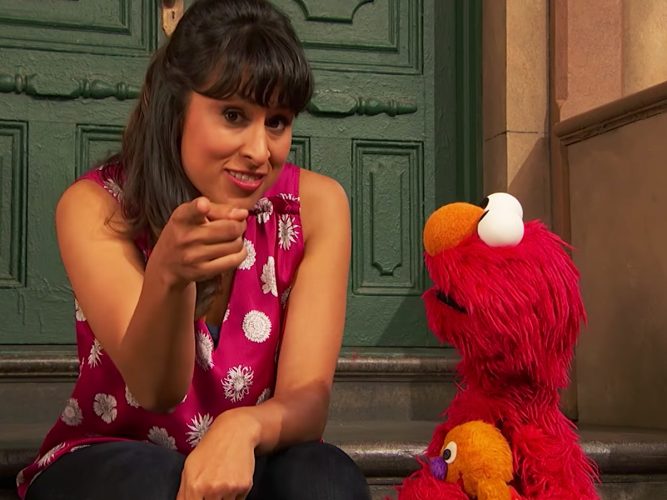
Ideas Into Action: Sharing Comfort Strategies with Children
You can show children how others use strategies for self-soothing.
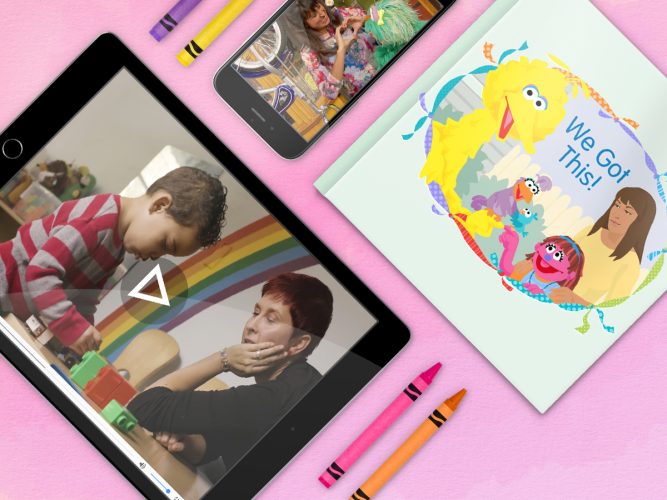
Provider Workshop: Healthy Goodbyes
In the face of these challenges, you can model healthy goodbyes.
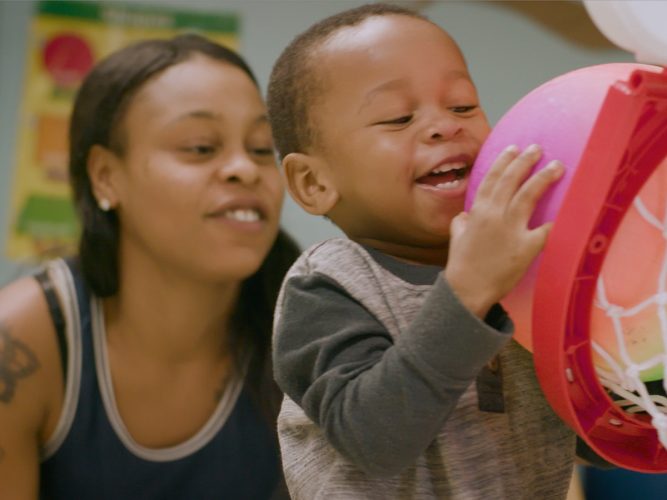
Promoting Healing Through Play in Shelters part 2
It’s not just the things you put into an environment that are important—a play space is made even more effective when adults interact with children in positive ways.
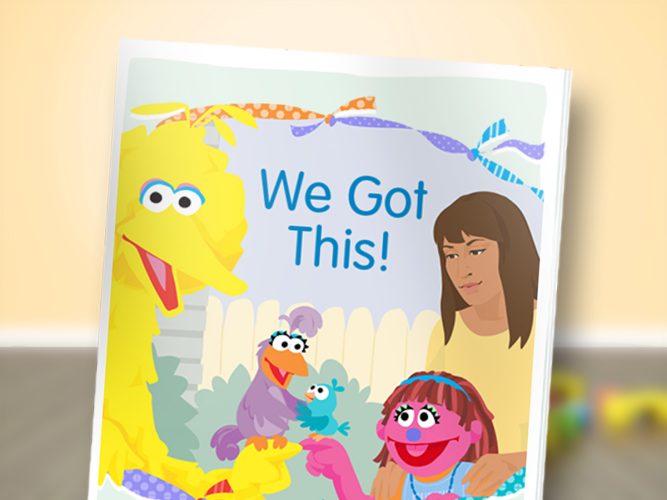
Ideas Into Action: Grown-Ups Come Back
A bag of ribbons can go a long way!
